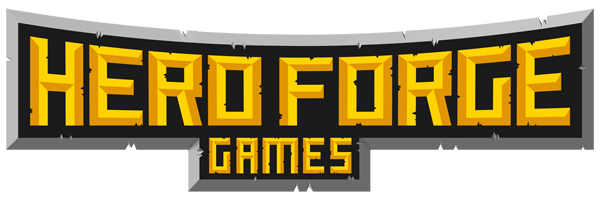I tend, as a designer, to rush to artwork and layout quite early in the design process. While other designers recommend waiting as late as possible before incorporating these graphical elements, I have not managed to internalise this habit.
With The Road to Ruin, I quickly moved from the white index cards to template cards that I wrote the various types of card text on. These cards were modelled directly on magic cards.
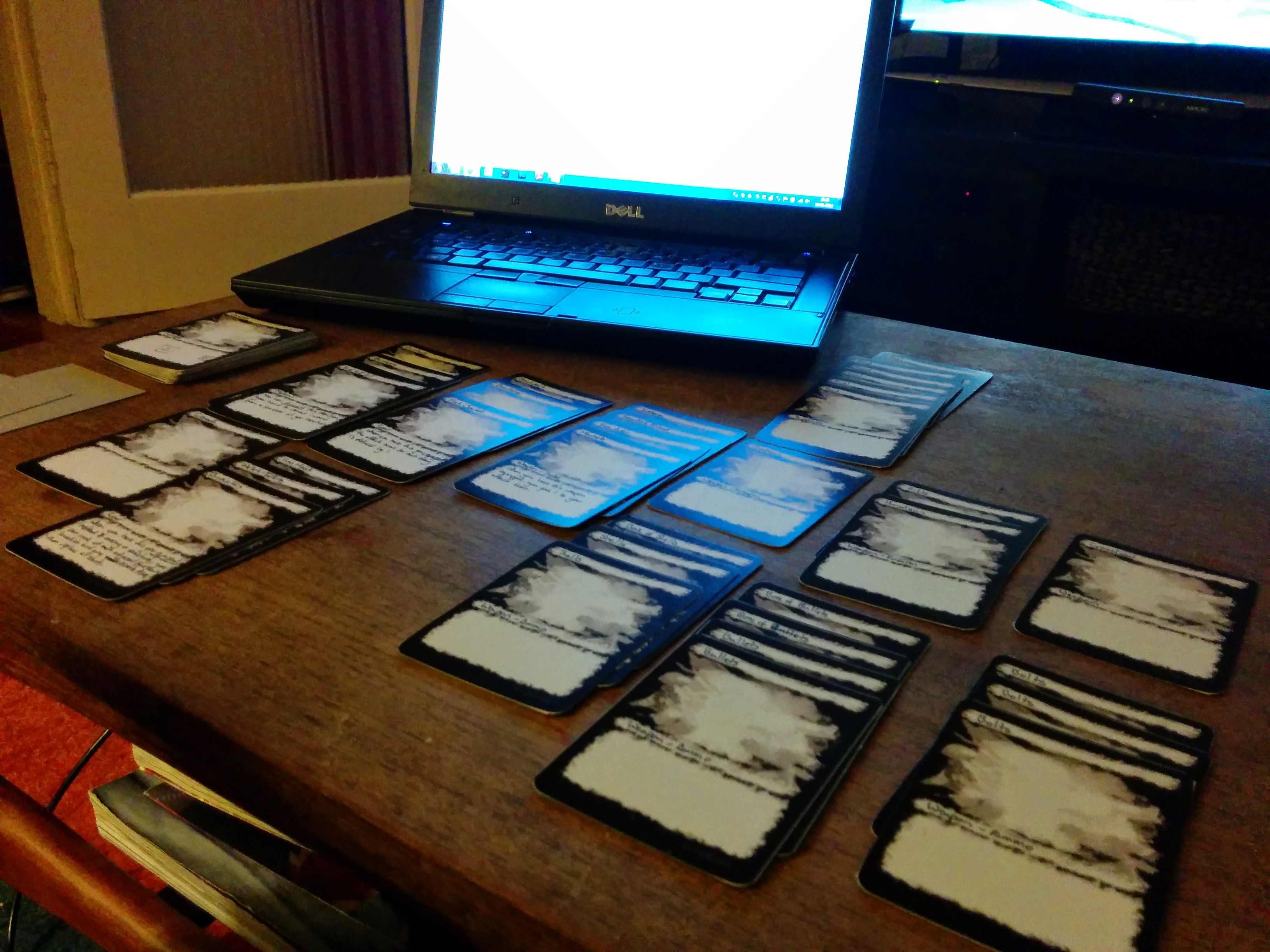
This next set of cards I made myself using a 3x3 grid of 63x88mm cards on a standard sheet of A4 paper. I print these double-sided at work, and then have them cut nicely at the local OfficeWorks. I also invested in a corner cutter, to get nice round corners.
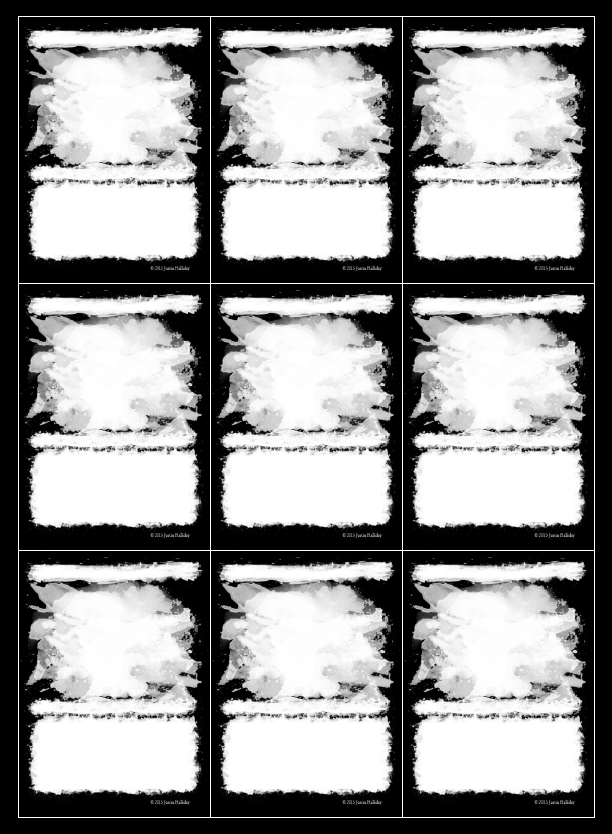
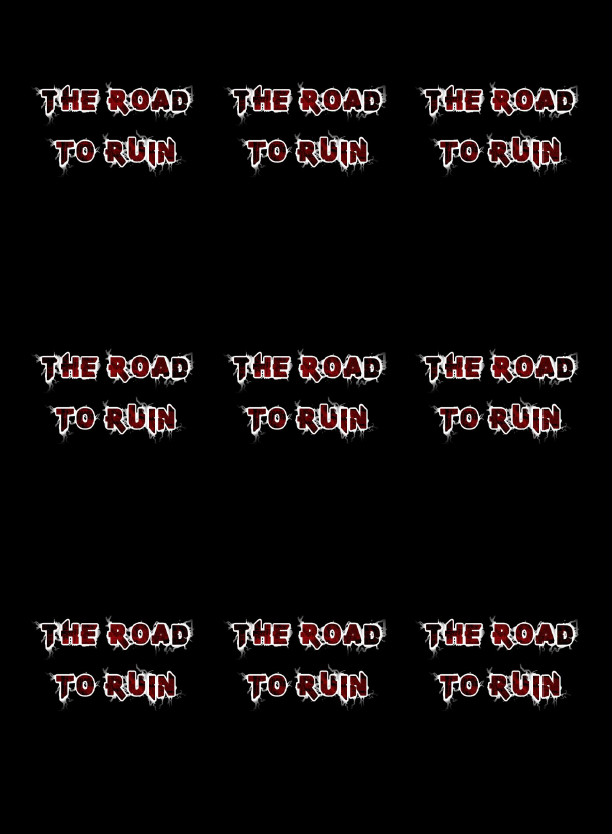
With my first deck of cards, I started designing, playtesting, and iterating The Road to Ruin.
Here, the core gameplay developed:
- The players start the game at the Safe House location. This is the only location that is revealed at the start of the game.
- The characters' mission is to explore the grid of hidden locations to find the six hidden supply items. The characters must collect the items and bring these back to the Safe House, where they are stored.
- Each of the locations on the grid comprises two cards: the location and the threat card.
- On each character's turn, they can move from their current location to an adjacent location (orthogonally for most characters).
- If the adjacent location is hidden, it is revealed, flipped over to show the location and zombies or supply item there.
- At the end of the character's turn, they must fight the zombies at their location.
- Zombie threats are rated 7-12 (in the early versions, this changed later). The player rolls 2d6 to determine their character's attack strength, and must equal or beat the zombie's strength.
- The character's attack strength can be modified by the character's special ability, and equipment or weapons can allow the player reroll dice multiple times.
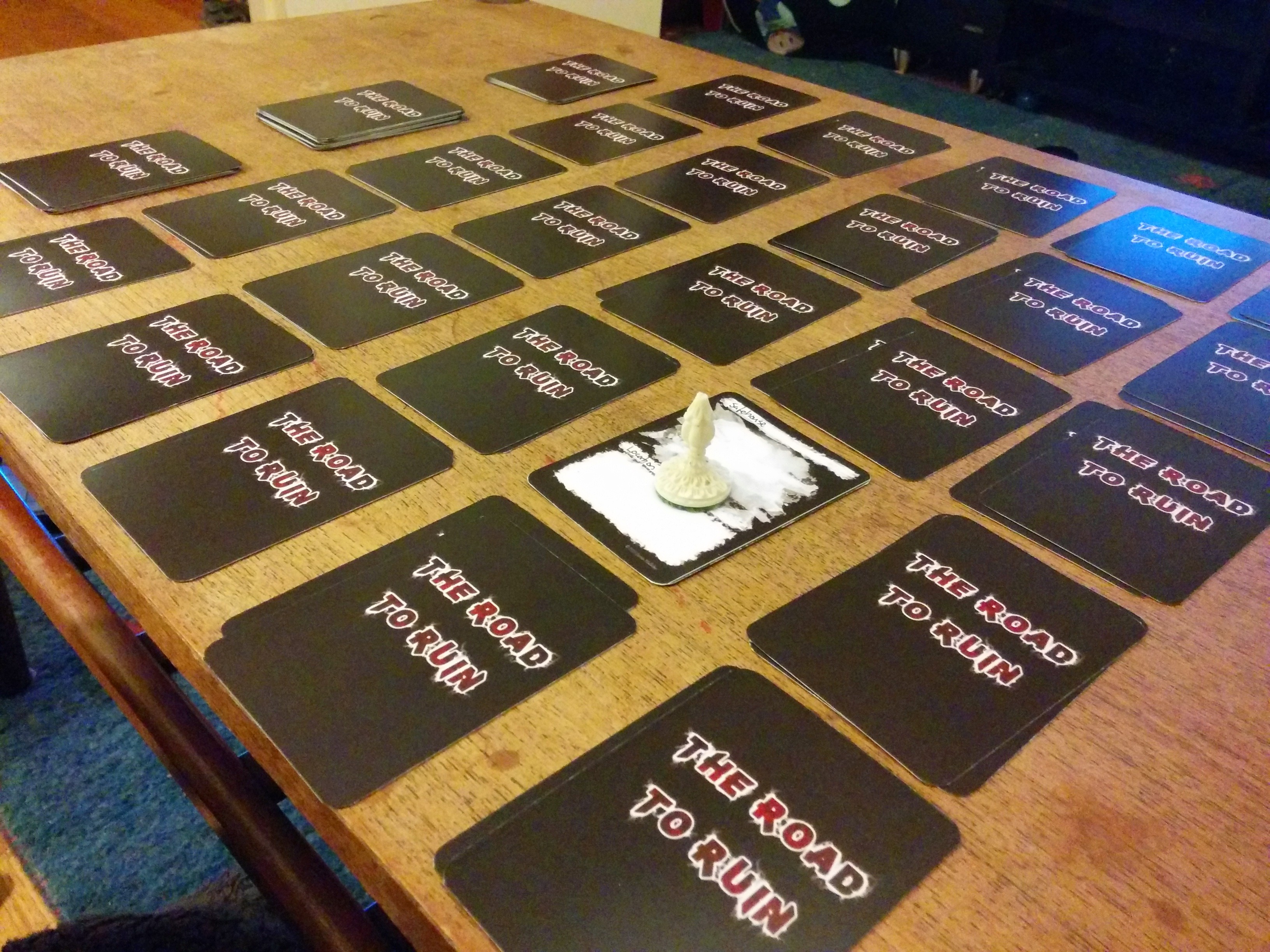
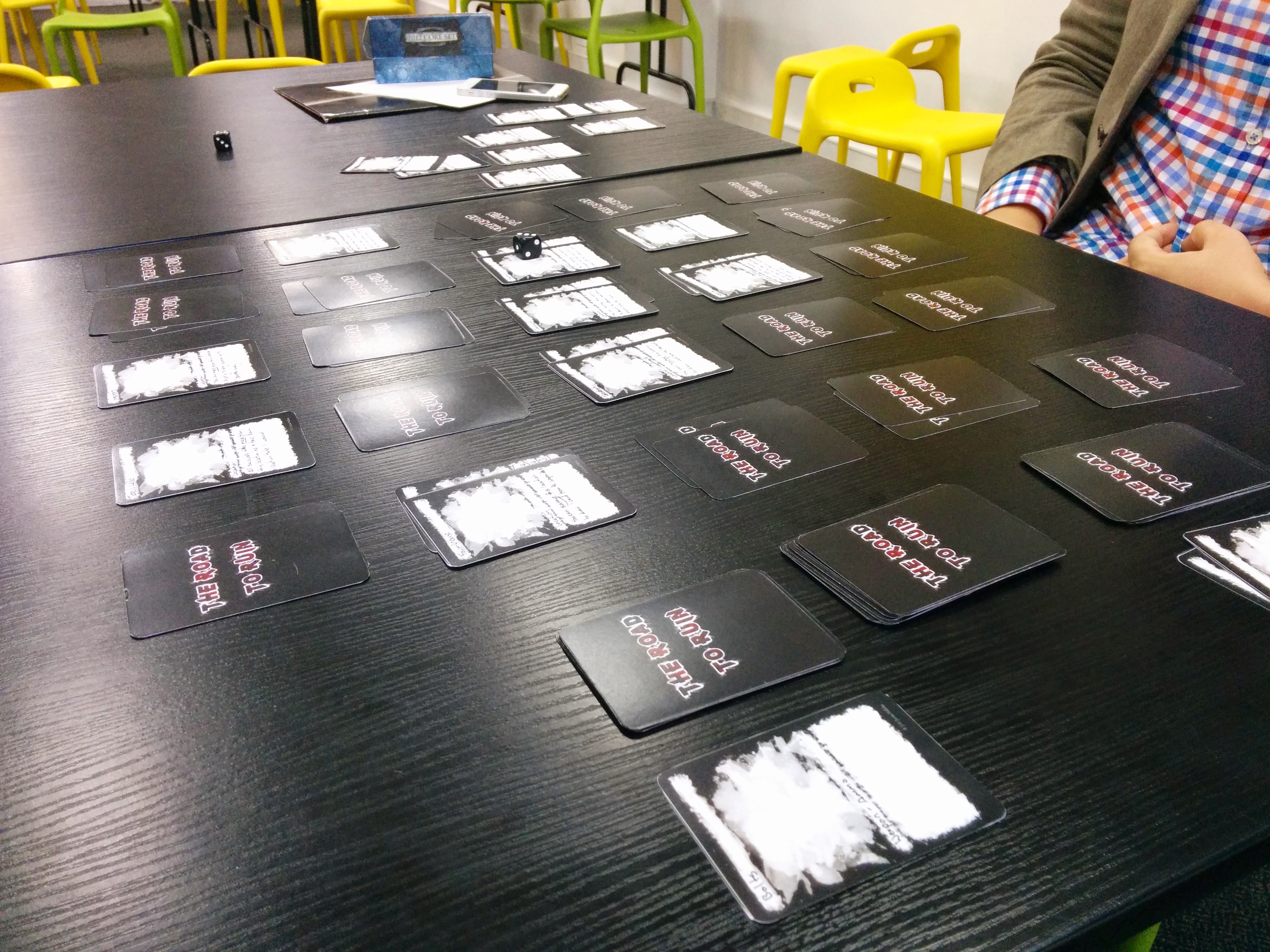
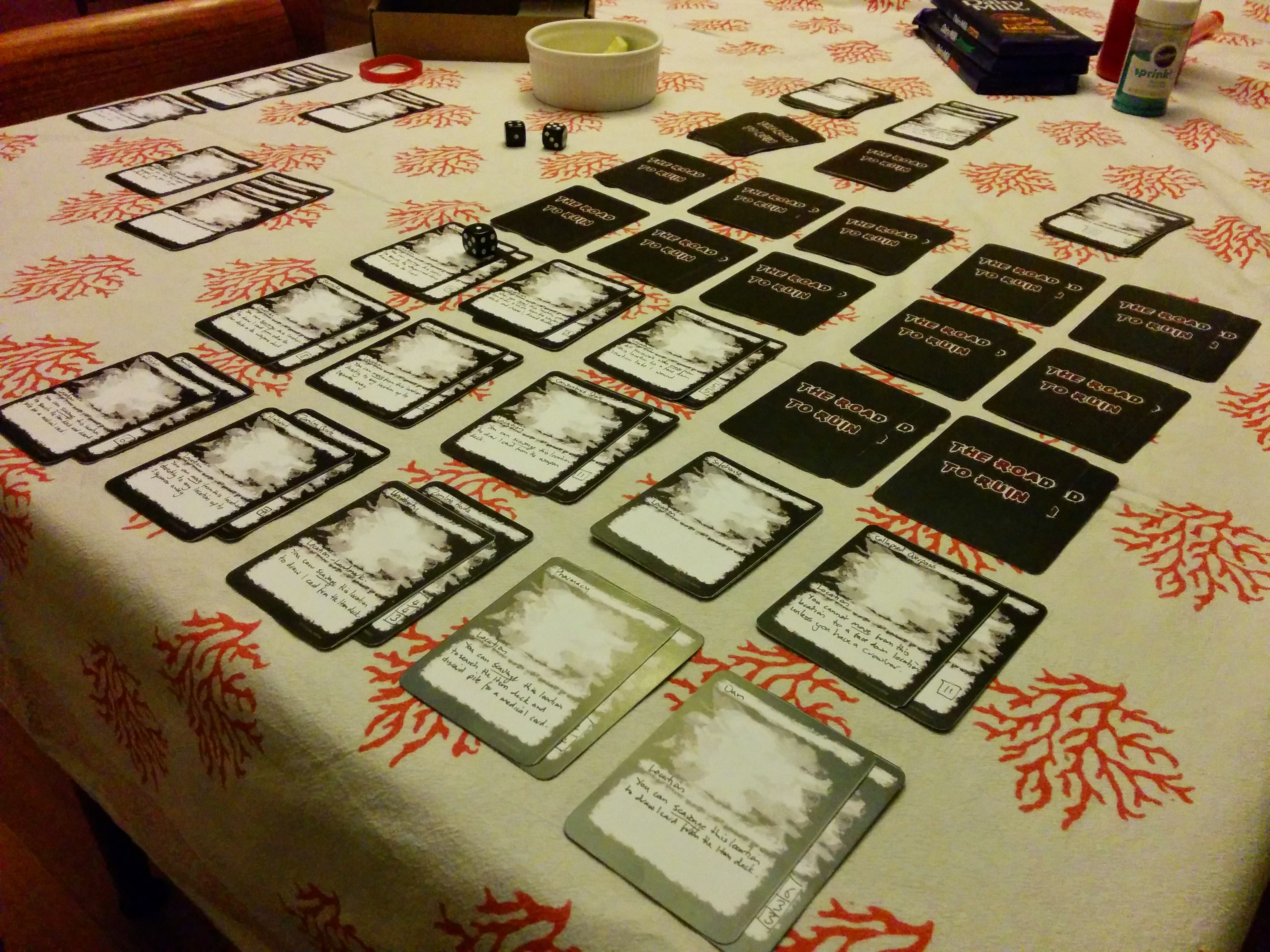
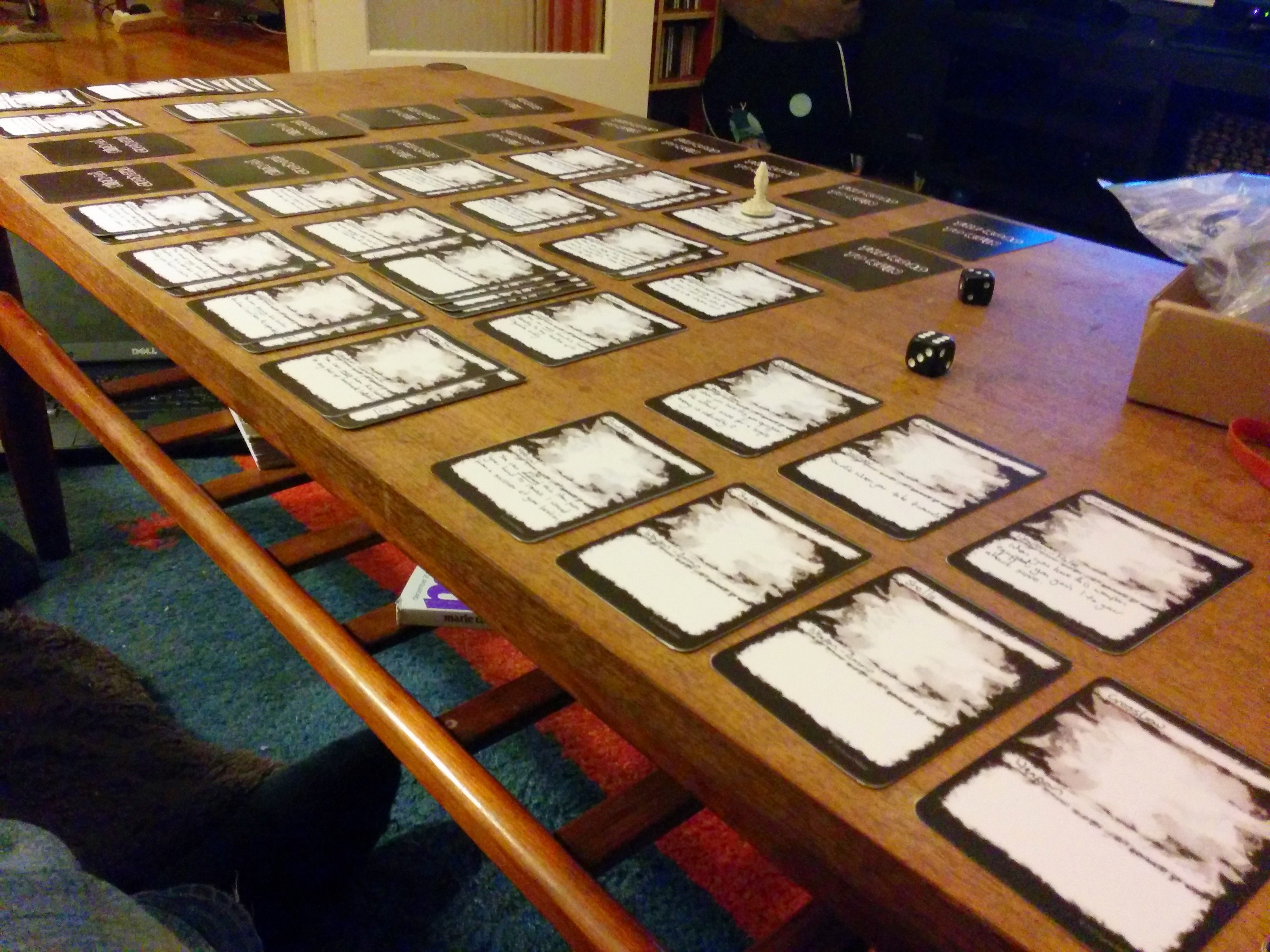
This section of design and development was not without some lessons:
- I originally had the supply items in the equipment deck. But I quickly learned that characters could sit on a scavenge location with a minor zombie threat and mill (a Magic the Gathering term for running through a deck to force that player to run out of cards) the equipment deck. Doing this, they would churn through the cards in the equipment deck, waiting for the supply items to come up.
- As mentioned above, the original version of the game had a single equipment deck that contained weapons and gear. I later changed this to two separate decks, the weapon deck for weapons, and a second item deck for other useful stuff. This allowed the player to choose their starting inventory balance between weapons and items, and also gave me leeway to design locations that allow the player to draw from one of these decks or from either.
- My goal for the game was for gradual attrition of the characters' equipment. To simulate this, I incorporated two mechanics: melee weapons that break and ammunition that runs out. In the final game, both of these events are triggered off specific die rolls during combat. Additionally, I also allowed the player to discard an inventory item from their hand during combat (such as a spare melee weapon, or some other superfluous item) to gain a reroll in combat to try to defeat their enemies. Early in the development, I had ammo grant a reroll when discarded in combat, like discarding an item. As a helpful player pointed out, this made ammo exactly as useful as any other item... So I first moved from a single ammo card granting a single reroll, to an ammo card granting two rerolls, and then finally to ammo cards having a unique set aside mechanic. The evolution of these cards, and underlying mechanics, is visible below.
- Another area that I iterated (code for 'fucked up the first time') is the zombies. Originally I had the zombies come in brutes, herds, and hordes, with one, two, or three numbers. In combat, the zombie numbers would be added up to calculate their total strength, and items would interact with these numbers differently. For example, a weapon or item might increase your attack score by 1, or it might decrease the attack score of each zombie by 1, reducing the zombies' total score by 1, 2, or 3, depending on the number of zombies. This is a pain in the ass, so I consolidated down to a single attack score for the zombies to streamline the game.
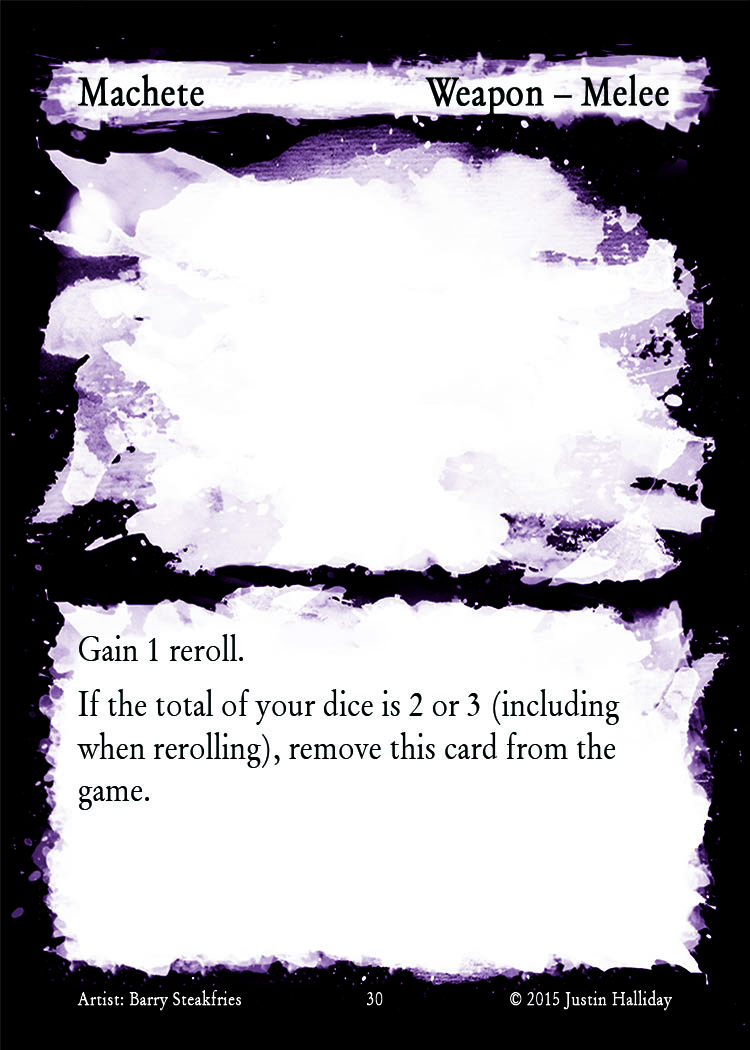
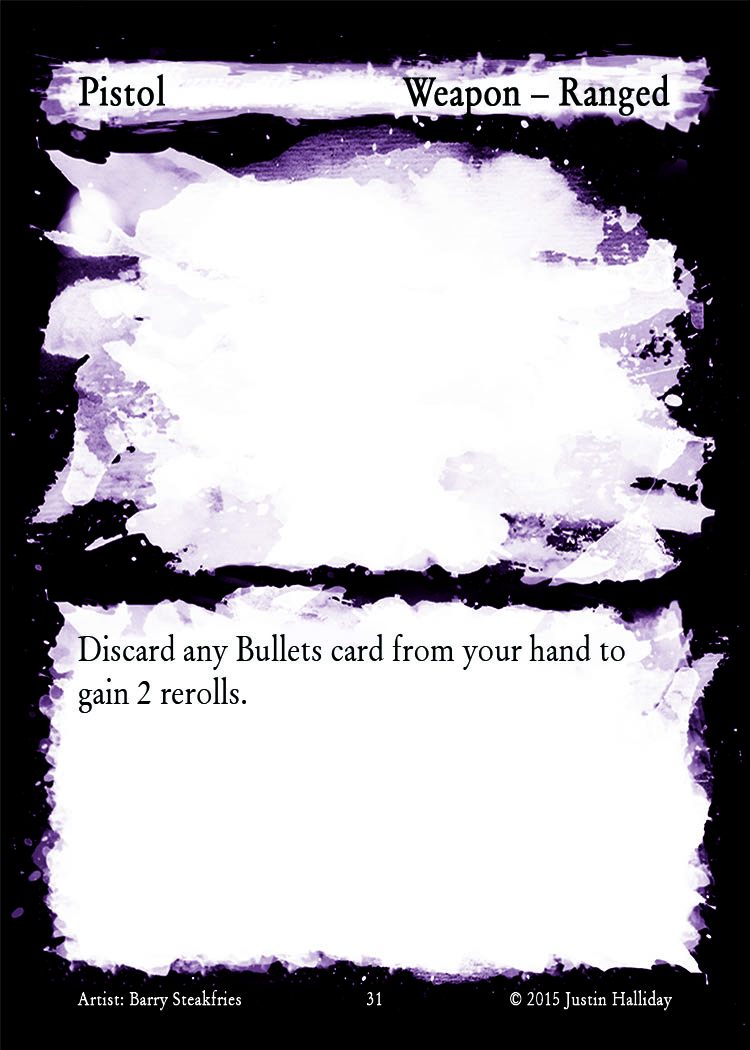
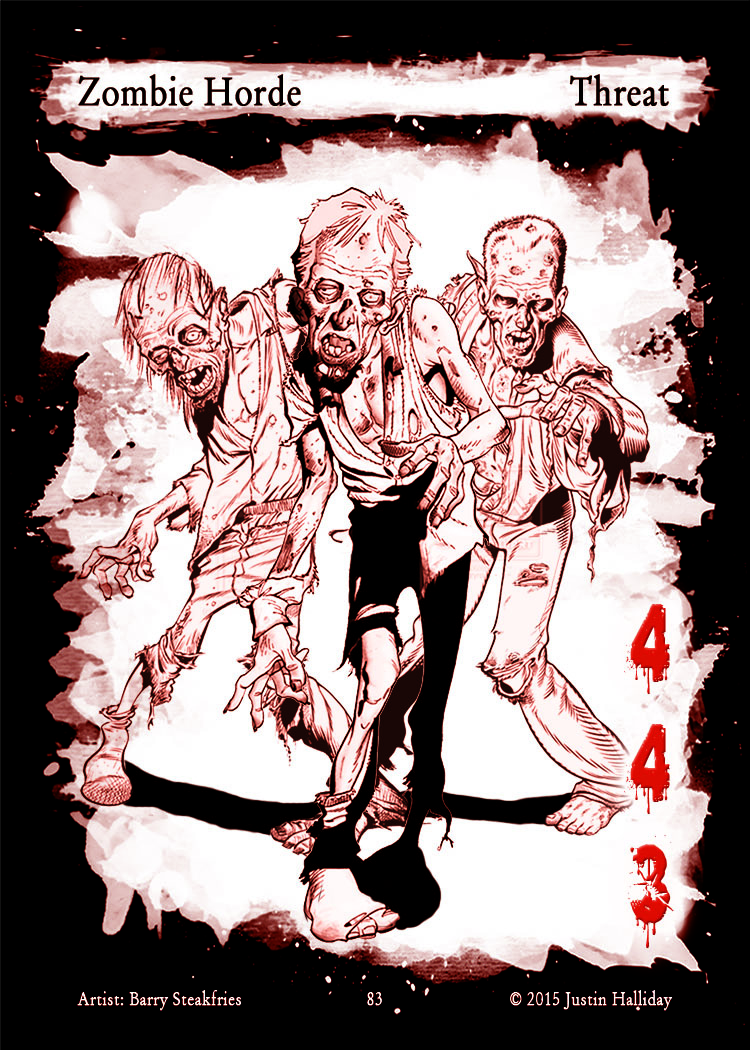
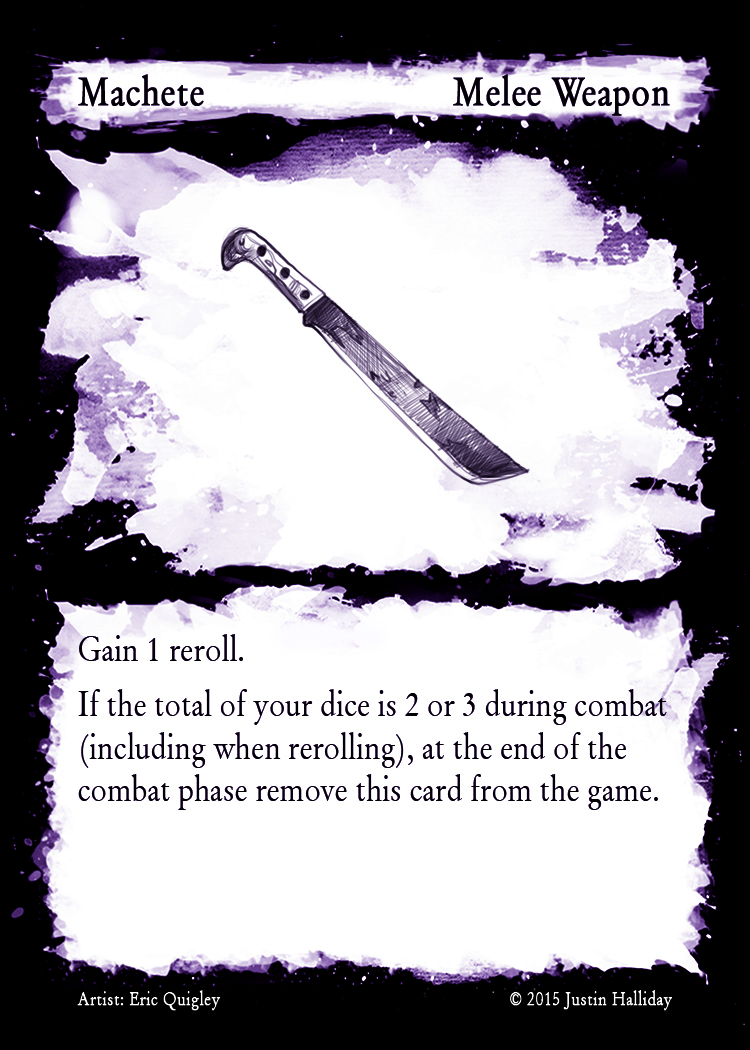
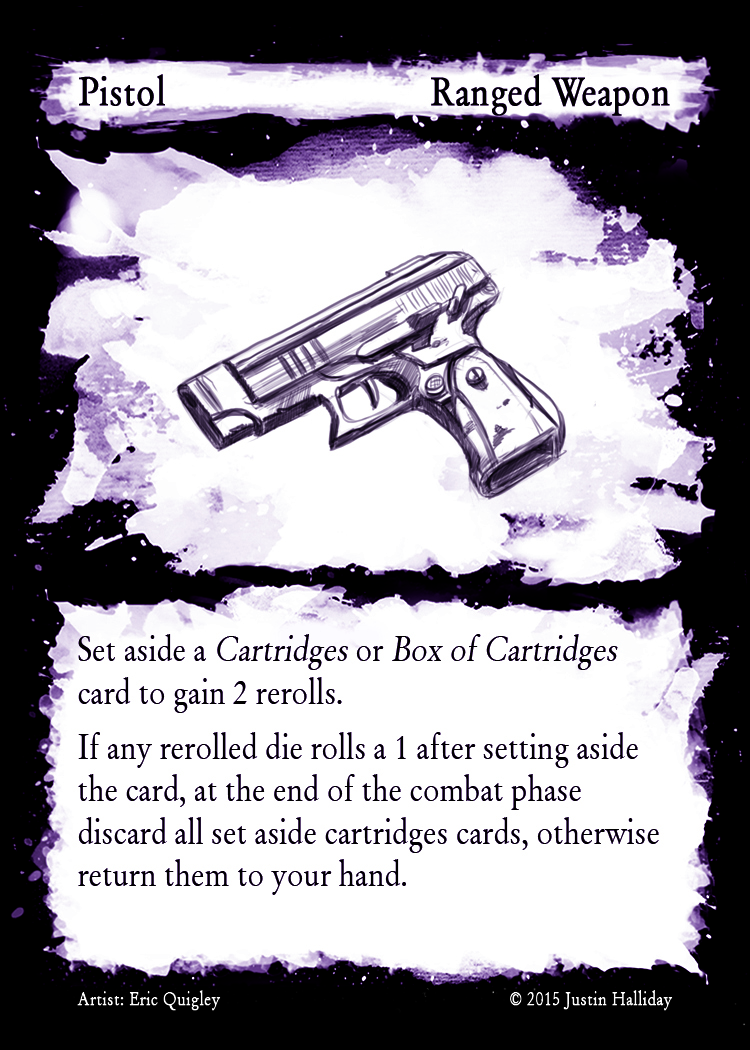
![Road to Ruin, The – Card – 82 – Zombie Horde[5]](https://www.heroforgegames.com/wp-content/uploads/2016/12/Road-to-Ruin-The-Card-82-Zombie-Horde5.jpg)
